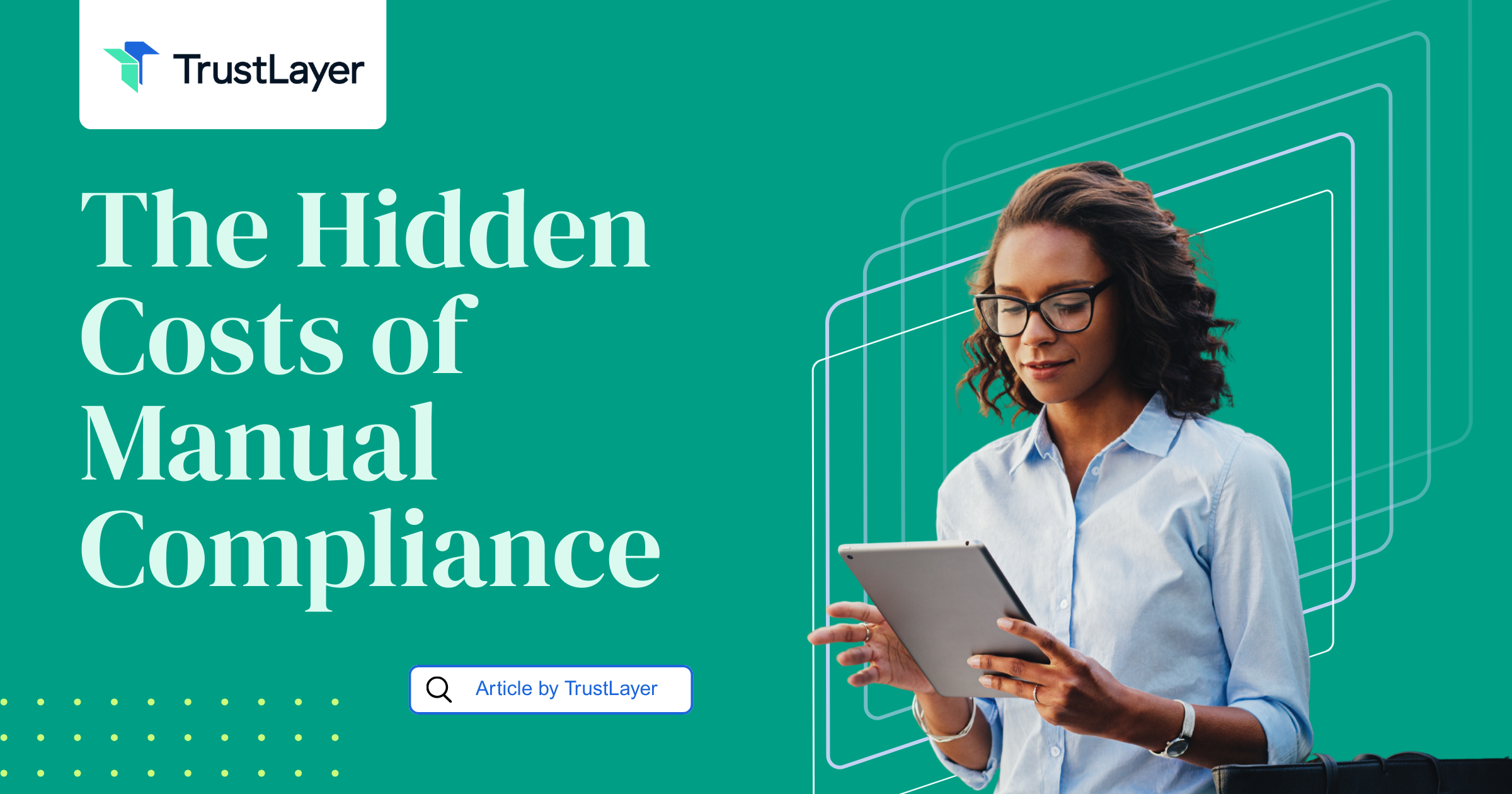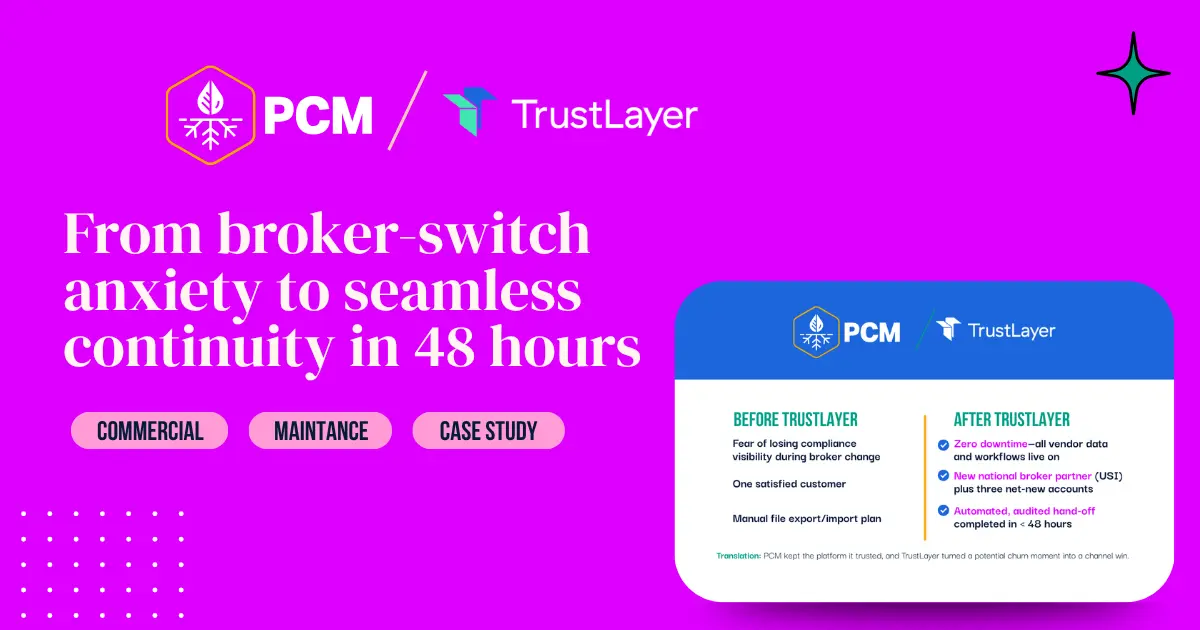Discovering the Benefits of COI Tracking Services
COI tracking services have become increasingly important in today's business landscape. As companies face growing risks and compliance challenges, it is crucial to have a robust system in place to manage certificates of insurance effectively. In this article, we will explore the benefits of COI tracking services and how they can enhance risk management, streamline operations, and ensure compliance.
Understanding COI Tracking Services
Before delving into the benefits, let's first understand what COI tracking is all about. COI stands for Certificate of Insurance, which is a document that verifies the existence of an insurance policy. COI tracking involves the collection, verification, and monitoring of these certificates to ensure that they are up to date and compliant with contractual requirements.
What is COI Tracking?
COI tracking is a process that helps businesses keep track of the insurance coverage held by their business partners, contractors, and vendors. By collecting and verifying COIs on an ongoing basis, companies can mitigate risks associated with inadequate insurance coverage, reduce the likelihood of costly legal disputes, and protect their reputation.
Key Features of COI Tracking Services
COI tracking services typically offer a range of features designed to simplify the management of certificates of insurance. These may include automated collection and verification, real-time monitoring for expiration dates, and alerts for non-compliant certificates. Some services even provide analytics and reporting capabilities to help businesses gain insights into their insurance risk profile.
The Importance of COI Tracking in Business
Effective COI tracking goes beyond mere compliance. It plays a vital role in risk management and helps businesses enhance their overall operational efficiency and credibility.
COI tracking is an essential practice for businesses of all sizes and industries. It involves monitoring and verifying the insurance coverage of partners, vendors, contractors, and subcontractors. By ensuring that these entities have the necessary insurance policies in place, companies can protect themselves from potential liabilities and financial losses.
Risk Management and COI Tracking
Risk management is a critical aspect of any business. By tracking COIs, companies can ensure that their partners and vendors have the necessary insurance coverage in place to protect themselves and mitigate potential liabilities. This, in turn, helps safeguard the company's own interests and reduces the likelihood of financial losses.
For instance, imagine a construction firm hiring a subcontractor without proper insurance coverage. If an accident were to occur on the job site, the construction firm could be held liable for damages. However, by utilizing COI tracking services, the construction firm can verify that the subcontractor has the required insurance, thus minimizing the risk of bearing the entire financial burden in such a scenario.
COI tracking also helps businesses identify potential risks and take proactive measures to mitigate them. By regularly reviewing and updating COIs, companies can stay informed about any changes in insurance coverage and address any gaps or deficiencies promptly. This proactive approach ensures that all parties involved are adequately protected, reducing the chances of unexpected financial setbacks.
Enhancing Compliance with COI Tracking
In addition to risk management, COI tracking services also help companies ensure compliance with contractual obligations. Many business agreements require specific insurance coverage, and failure to comply with these requirements can result in costly legal disputes or even loss of business opportunities.
By using COI tracking services, companies can easily verify that their partners and contractors have the necessary insurance coverage and are compliant with contractual obligations. This not only helps avoid potential legal issues but also instills trust and confidence among clients and partners.
Furthermore, COI tracking provides businesses with a comprehensive record of insurance coverage for all parties involved. This documentation can be invaluable during audits, inspections, or legal proceedings, as it demonstrates the company's commitment to compliance and risk management.
Moreover, COI tracking services often offer automated notifications and reminders, ensuring that companies stay up to date with insurance renewals and policy changes. This proactive approach helps businesses maintain continuous compliance and avoid any disruptions in their operations.
In conclusion, COI tracking is a crucial practice for businesses seeking to manage risks effectively, enhance compliance, and maintain their overall operational efficiency and credibility. By investing in COI tracking services, companies can protect themselves from potential liabilities, ensure compliance with contractual obligations, and build trust with their clients and partners.
Unveiling the Benefits of COI Tracking Services
Now that we understand the importance of COI tracking, let's explore the specific benefits that these services offer.
COI tracking services go beyond just ensuring compliance with insurance requirements. They provide businesses with a range of advantages that can significantly impact their operations and financial stability.
Streamlining Operations with COI Tracking
Managing COIs manually can be time-consuming and prone to errors. COI tracking services automate the collection, verification, and monitoring processes, saving businesses valuable time and reducing administrative burden.
Imagine the hours spent chasing down insurance certificates, manually reviewing documents, and updating spreadsheets. With COI tracking services, these tasks are streamlined and simplified. The system automatically collects and verifies insurance certificates, sends reminders for expiring policies, and updates the database in real-time.
By implementing an efficient COI tracking system, businesses can streamline their operations, allowing employees to focus on more strategic tasks rather than getting caught up in manual paperwork. This increased efficiency translates into cost savings and improved productivity.
Furthermore, COI tracking services provide businesses with comprehensive reports and analytics. These insights help identify trends, potential risks, and areas for improvement. With this valuable information, companies can make data-driven decisions and implement proactive measures to mitigate risks.
Cost-Effectiveness of COI Tracking Services
While some businesses may view COI tracking services as an additional expense, they often prove to be cost-effective in the long run. Efficient COI tracking helps companies identify potential risks and gaps in insurance coverage, enabling them to take necessary actions before costly incidents occur.
Consider the financial implications of not having proper insurance coverage. In the event of a claim, businesses without the appropriate coverage may face significant out-of-pocket expenses, legal battles, and reputational damage. COI tracking services act as a safety net, ensuring that all vendors, contractors, and suppliers have the necessary insurance coverage to protect the business.
Moreover, the financial impact of lawsuits, fines, and reputational damage resulting from non-compliant insurance coverage can far outweigh the cost of implementing COI tracking services. By proactively managing insurance compliance, businesses can avoid such financial setbacks and focus on achieving long-term growth and success.
Additionally, COI tracking services often offer cost-saving opportunities by identifying redundant or unnecessary insurance policies. By analyzing the coverage requirements and eliminating overlapping policies, businesses can optimize their insurance portfolio and reduce premium costs.
Furthermore, some COI tracking services offer integration with other business systems, such as procurement or vendor management platforms. This integration streamlines processes, eliminates duplicate data entry, and enhances overall efficiency.
As businesses continue to recognize the importance of insurance compliance, COI tracking services have become an essential tool for managing risks, ensuring compliance, and optimizing operations. The benefits of these services extend far beyond the initial investment, providing businesses with peace of mind, cost savings, and improved productivity.
Choosing the Right COI Tracking Service
Selecting the right COI tracking service is crucial to ensure that businesses can fully leverage the benefits mentioned above. When considering different options, there are several key factors to consider.
Factors to Consider When Selecting a COI Tracking Service
Firstly, businesses must evaluate the features offered by COI tracking services and consider how well they align with their specific needs. It is important to ensure that the service provides automated collection, verification, and monitoring capabilities, as well as robust reporting and analytics functionalities.
Automated collection is a critical feature that saves businesses time and effort by automatically gathering certificates of insurance from vendors and contractors. This eliminates the need for manual data entry and reduces the risk of missing important documents.
Verification is another key feature to look for in a COI tracking service. The service should have a robust system in place to verify the authenticity and accuracy of the certificates collected. This ensures that businesses are protected from fraudulent or expired insurance documents.
In addition to collection and verification, monitoring capabilities are essential for businesses to stay on top of their COI compliance. The service should provide real-time alerts and notifications for expired or non-compliant certificates, allowing businesses to take immediate action and mitigate potential risks.
Furthermore, reporting and analytics functionalities are crucial for businesses to gain insights into their COI compliance and identify areas for improvement. The service should offer customizable reports and dashboards that provide comprehensive data on certificate status, compliance trends, and vendor performance.
Secondly, businesses should also consider the reputation and track record of the COI tracking service provider. This can be accomplished by researching customer reviews, case studies, or testimonials to gain insights into the provider's reliability and customer satisfaction levels.
Customer reviews provide valuable feedback from businesses that have already used the service, giving potential customers an idea of what to expect. Case studies and testimonials showcase successful implementations and highlight the benefits that businesses have gained from the service.
Evaluating the Effectiveness of a COI Tracking Service
Once a COI tracking service has been implemented, it is necessary to periodically evaluate its effectiveness in meeting business objectives. This can be done by reviewing key performance indicators such as turnaround time for certificate collection, accuracy of verification, and reduction in compliance issues.
A shorter turnaround time for certificate collection indicates that the COI tracking service is efficient in gathering the necessary documents from vendors and contractors. This reduces delays in project timelines and ensures that businesses have the required insurance coverage in place before starting work.
The accuracy of verification is another important metric to consider. A high rate of accurate verification means that the COI tracking service is effectively identifying fraudulent or expired certificates, protecting businesses from potential liability and financial loss.
Furthermore, businesses should assess the reduction in compliance issues after implementing the COI tracking service. Fewer compliance issues indicate that the service is helping businesses maintain a higher level of COI compliance, reducing the risk of penalties, legal disputes, and reputational damage.
Businesses should also seek feedback from internal stakeholders and external partners to gauge their satisfaction with the COI tracking service. This feedback can help identify areas for improvement, ensure continuous optimization, and maximize the benefits derived from the service.
Internal stakeholders, such as risk managers and procurement professionals, can provide insights into the ease of use, effectiveness, and overall value of the COI tracking service. External partners, such as vendors and contractors, can provide feedback on their experience with the service, including the ease of submitting certificates and the responsiveness of the support team.
By regularly evaluating the effectiveness of the COI tracking service and gathering feedback from stakeholders, businesses can ensure that they are maximizing the benefits of the service and continuously improving their COI compliance processes.
The Future of COI Tracking Services
As technology continues to evolve, so too do COI tracking services. The future holds promising advancements that will further enhance the effectiveness and efficiency of these services.
Technological Advancements in COI Tracking
New technological developments, such as artificial intelligence and machine learning, are poised to revolutionize COI tracking. These innovations can automate and streamline the entire process, making it even more efficient and accurate.
For example, advanced algorithms can automatically extract relevant information from COIs, flag discrepancies, and predict potential risks based on historical data. Such capabilities will enable businesses to proactively manage insurance compliance and further strengthen their risk management strategies.
Trends Shaping the Future of COI Tracking Services
Another trend shaping the future of COI tracking services is the increasing emphasis on blockchain technology. Blockchain offers a decentralized and immutable ledger system that can securely store and verify insurance-related information. By leveraging blockchain, COI tracking services can enhance transparency, trust, and security in the management of certificates of insurance.
Furthermore, the rise of remote work and the gig economy has brought about new challenges for COI tracking. As businesses engage with a broader network of independent contractors and freelancers, COI tracking services will need to adapt and provide seamless integration with various platforms, ensuring comprehensive coverage across all business relationships.
In conclusion, COI tracking services offer numerous benefits that have become essential for businesses across industries. By investing in the right COI tracking service, companies can enhance risk management, streamline operations, ensure compliance, and ultimately protect their bottom line. As the landscape continues to evolve, businesses must stay ahead of the curve, utilizing the latest technological advancements and trends to maximize the effectiveness of their COI tracking efforts.
















